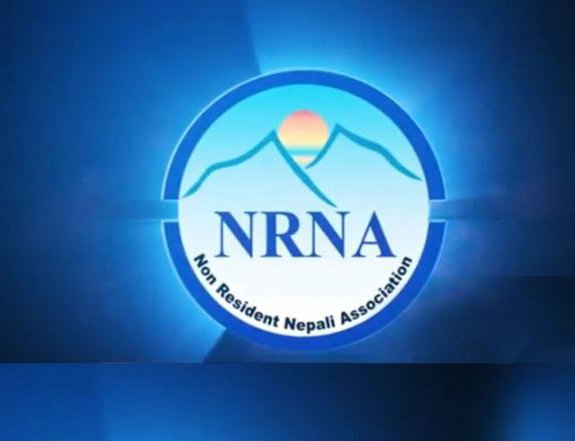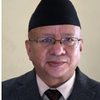
Certificate of Nepalese citizenship to NRN Nepal has started issuing citizenship certificates to non-resident Nepalis. The news has become public in the title, “The government of Nepal has started giving Nepali citizenship certificates to non-resident Nepalis (NRNs)”. This is “NRN Citizenship”. In a recent program held at the Prime Minister's residence, Prime Minister Pushpa Kamal Dahal presented the certificate of non-resident Nepalese citizenship to the executive president of Non-Resident Nepali Association (NRNA) Badri KC and president Kul Acharya. According to Article 14 of the Constitution of Nepal, non-resident Nepalese citizenship documents were provided. With the amendment of the Nepal Citizenship Act, 2063, the constitutional provision has become easier.
Non-resident Nepalis have been granted Nepali citizenship by providing economic, social and cultural rights. Along with this, non-resident Nepalis can now apply for such certificates.
NRNA has been demanding citizenship for non-resident Nepalis for a long time.
Ram Kumar Jhakri's outrage
Also, in the recently concluded conference of NRN, the leader of CPN United Samajwadi Ram Kumari Jhakri strongly presented in the program of NRNA. After some of the NRNA participants in the program said that they needed citizenship with political rights, Jhankri strongly objected to it. When the other two questioners also expressed the same intention and began to object to the chairman, Jhankri was strongly presented. Jhankri said - 'I also feel like shouting at you, but I feel like I can't shout because you are our guest.' Regarding the non-resident Nepalese citizenship, 'we also knew that this is a matter that will penetrate to the bottom after putting a finger', she added, 'that's why this is exactly a matter of citizenship. She said that she did not want to insult the NRNA, but after getting a foreign passport, she did not have to worry about the country.
After giving up the citizenship and passport of Nepal, when you should earn a couple of money, have skills and do something when you return to the country, we brought this constitution after the movement and after the republic we made this arrangement?
She warned that it is not appropriate to come to Nepal and talk about citizenship. After that, even though Jhankri's protest started from the audience, she became more aggressive saying that such slogans do not matter to her. She said that the citizenship laws of each country are based on the specifics of that country and said that NRNAs have been given non-resident citizenship with political rights. She said before, 'Friends, open your ears and listen.... Human rights are universal. Citizen rights are not given to you. Non-resident citizenship has been given.'' She gave up his citizenship happily but now she has become public in the public network, which became a state of tension for a while after she expressed his anger that he would do big things.
What does the citizenship amendment say?
In Section 4 of Nepal Citizenship (First Amendment) Act, 2079, Section 7 has been added to the original Act as "After Section 7 of the Original Act, Section 7A has been added. “A person residing in a country other than a member state of the South Asian Regional Cooperation Organization and having acquired the citizenship of a foreign country after being a citizen of Nepal by descent or birth on the basis of his or her father or mother, grandfather or grandmother, is entitled to enjoy economic, social and cultural rights, non-residential Nepalese citizenship.
It has been said that there is a strong possibility that there will be problems than the Nepalis outside of South Asia, because their emotional and mostly low-income levels of income also come from that country. Advantages and disadvantages
For an underdeveloped country like Nepal, dual citizenship with Nepalese characteristics can have both advantages and disadvantages. Although the current amendment does not grant political rights as full citizenship does.
Some potential benefits of dual citizenship may include: Increased access to education and employment opportunities abroad. Dual citizenship allows individuals to study or work in other countries, allowing them to acquire new skills and knowledge. It can help them to return to their country.
Improved access to foreign markets: Dual citizenship allows individuals to do business in other countries more easily, potentially increasing economic development in their home country. Enhanced security:
Dual citizenship can provide individuals with an extra layer of protection, especially if they are living in or traveling to a country with a questionable human rights record. However, there can also be disadvantages of dual citizenship, including:
Conflicting loyalties:
Dual citizenship can lead to divided loyalties and feelings of identity conflict for citizens of two different countries. Legal complications: Dual citizenship can sometimes create legal complications, especially if the two countries have conflicting laws or if one country does not recognize the other's citizenship.
Potential discrimination:
Some people with dual citizenship may face discrimination or prejudice in one or both of their countries of citizenship. It is difficult to compare the overall gravity of these advantages and disadvantages, as they depend on the individual circumstances of each person with dual citizenship. A person with dual citizenship is a citizen of two countries at the same time, which has both advantages and disadvantages because it is a complex legal situation.
One advantage of dual citizenship that is often cited is the ability for a person to hold two passports; However, one potential drawback is the possibility of double taxation.
In the basics: Dual citizens enjoy certain benefits, such as the ability to live and work freely in two countries, own property in both countries, and travel between countries with relative ease.
Not every country recognizes dual citizenship, and one must give up one's birth citizenship to become a citizen of a new country. Disadvantages of dual citizenship include the possibility of double taxation, the lengthy and expensive process of obtaining dual citizenship, and the fact that you are bound by the laws of two countries.
The easiest way to become a dual citizen is by birth, although many immigrants can become naturalized citizens by moving to a new country or marrying a foreign spouse.
Applying for dual citizenship is a complex and usually expensive process that may require the assistance of an immigration attorney.
What is dual citizenship?
Not all countries allow dual citizenship, but the United States and some other countries does. Dual citizenship is automatic in certain circumstances, such as when a child is born in the US to parents who are residents of a foreign country.
Unless the parent is a foreign diplomat, the child generally becomes a citizen of the United States, in addition to any citizenship they received from their parents. Similarly, if a child of US citizens is born abroad, they may automatically become citizens of both the United States and their country of birth (although this is circumstantial as it depends on the laws of the particular country).
Dual citizenship can also be obtained through special legal processes, such as when a foreign national is naturalized as a US citizen. In this case, the person will become a citizen of both countries, unless their home country allows dual citizenship.
To be naturalized as a U.S. citizen, a foreign national must have been a permanent resident for several years, pass the U.S. citizenship test, and meet certain other eligibility requirements.
Benefits of dual citizenship
Political rights: Dual citizens can participate fully in the political life of each country of citizenship. But in Nepal this is not mentioned. Perhaps it includes the right to vote and stand for election, and the right to donate to political candidates. Has anything been decided about the law in the past? That can be the subject of study.
Unlike work and travel foreigners, dual citizens do not need visas or permits to visit their countries of citizenship, and can stay as long as they want. They also have the right to find work in both countries, while foreigners have to go through a lengthy process to obtain a work permit.
They are also exempt from any restrictions on foreign businessmen. Social Services
Dual citizens can enjoy the benefits and privileges offered by each country where they are citizens. For example, they may travel to receive medical treatment or procedures that are not available in their other country of citizenship. They can also get education at the same cost as domestic students.
Two passports
As a dual citizen, it is allowed to carry passports of both countries. For example, if you are a US citizen and also a New Zealand citizen, you can easily travel between these two countries. A citizen's passport eliminates the need for a long-stay visa and any questions about the purpose of travel.
Customs procedures.
It guarantees dual passport holders the right to enter both the US and New Zealand. This can be especially beneficial if you have family to visit in both countries, or if you are a student or business person who studies or conducts business in both countries. Owning property
Another benefit of dual citizenship is the ability to own property in either country. Some countries restrict land ownership to citizens only.
As a legal citizen of two countries, you will be able to purchase property in either or both countries. If you travel frequently between the two countries, this can be especially useful as property ownership can offer a more affordable way to live in two places.
Cultural Education
As a dual citizen, you will benefit from being immersed in the cultures of two countries. Some government officials also favor dual citizenship and see it as a way to promote the country's image as a prime destination for tourists.
Dual citizenship offers individuals the opportunity to learn about the history of both countries, learn two (or more) languages, and experience a different way of life. Dual citizenship is when a person is a citizen of two countries at the same time, with all the rights and privileges that come with it. Dual citizens can travel freely in both countries, as well as work, trade, own land, and other activities that may be restricted to foreigners; However, there are also disadvantages, as dual citizens may face additional taxes or even military service.
On the whole, the demand of this community, which NRN has been saying for a long time and has contributed significantly in sending the remittance, has been addressed, and it has been revealed that skill, knowledge and dedication will come to Nepal, but it is silent on political matters, but the results of the past elections, especially the local elections, have been the vivid reminder that the decision made in the diaspora had significant impact in the elections. It has been indicated that the person NRN Nepali wants will be elected, but this can be a subject of discussion and study.
- Do Not Talk Too Much Negatively About Nepal!-Success Or Failure Of Nepal: Is It An Economic Problem? -
- Jun 23, 2024
- A Lot Of Heat Day In Nepal!!! Or Has The Summer Temperature Broken The Record So Far?
- Jun 03, 2024
- Nepal's 2081/82 Policy and Programme, Parliament Obstacles:Some Perspectives
- May 16, 2024
- Impact Of Indian Elections In Nepal
- May 03, 2024
- A Review Of The Handwritten “Gita Saar” Written By Krishna Prasad Lacoul In 1967-68 B.S.
- Apr 19, 2024

















